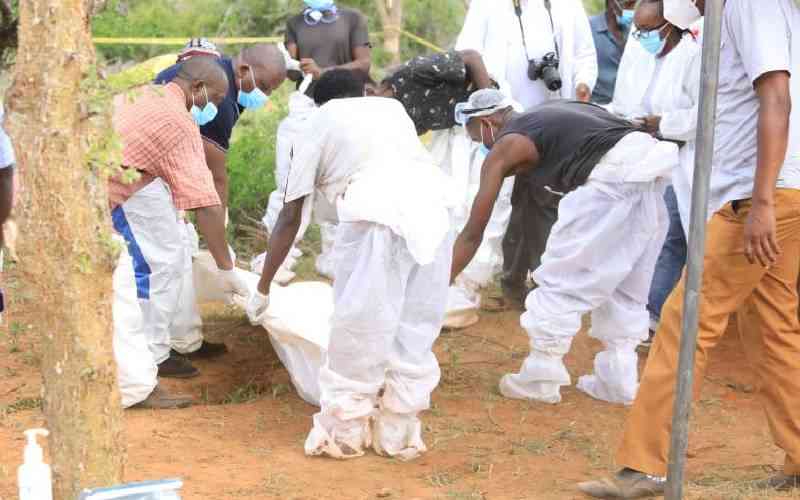×
The Standard e-Paper
Stay Informed, Even Offline

The uncovered shallow graves on the desolate plains of Malindi's Shakahola village tell a sorrowful story of a heinous crime.
Homesteads called Bethlehem, Judea, and Nazareth, where Makenzi's followers reputedly starved to death to "meet Jesus," are desolate within the village's thickets.







